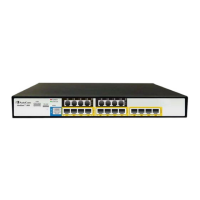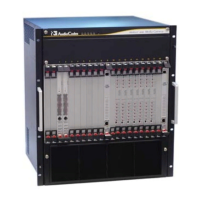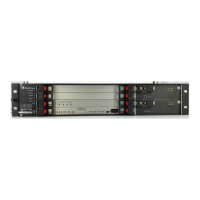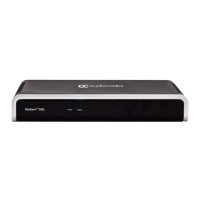SIP User's Manual 166 Document #: LTRT-12804
Mediant 800 MSBG
Since each call must have a destination IP Group (even in cases when the destination type
is not to an IP Group), in cases when the IP Group is not specified, the SRD's default IP
Group is used (the first defined IP Group that belongs to the SRD).
Figure 3-83: Locating SRD
When using a proxy server, you don't need to configure this table unless you require one of
the following:
Fallback routing if communication is lost with the proxy server.
IP Security feature (enabled using the SecureCallFromIP parameter): the device
routes only received calls whose source IP address is defined in this table.
Filter Calls to IP feature: the device checks this table before a call is routed to the
proxy server. However, if the number is not allowed, i.e., the number does not exist in
the table or a Call Restriction (see below) routing rule is applied, the call is released.
Obtain different SIP URI host names (per called number).
Assign IP Profiles to calls.
Note: For this table to take precedence over a proxy for routing calls, you need to
set the parameter PreferRouteTable to 1. The device checks the 'Destination
IP Address' field in this table for a match with the outgoing call; a proxy is
used only if a match is not found.
Possible uses for configuring routing rules in this table (in addition to those listed above
when using a proxy), include the following:
Call Restriction: Rejects calls whose routing rule is associated with the destination IP
address 0.0.0.0.
Always Use Routing Table feature: Even if a proxy server is used, the SIP Request-
URI host name in the sent INVITE message is obtained from this table. Using this
feature, you can assign a different SIP URI host name for different called and/or
calling numbers. This feature is enabled using the AlwaysUseRouteTable parameter.

